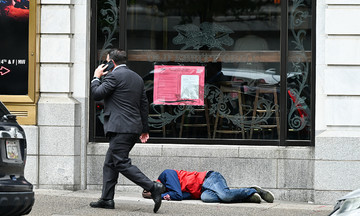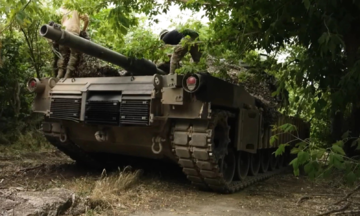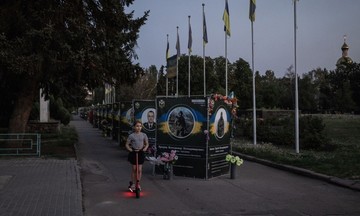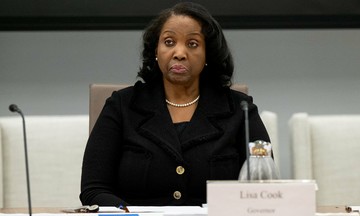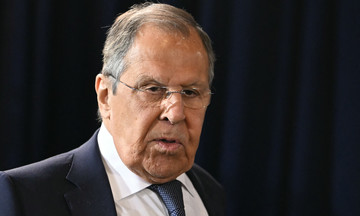European leaders held a virtual meeting with US President Donald Trump on 13/8, just two days before his summit with Russian President Vladimir Putin in Alaska.
The transatlantic meeting, chaired by German Chancellor Friedrich Merz, was seen as a last-minute attempt by Europe to find common ground with the White House and forge a unified strategy to end the war in Ukraine. Also present were US Vice President JD Vance, Ukrainian President Volodymyr Zelensky, and several European leaders with close ties to Trump.
European leaders' primary goal was to convince Trump that any peace plan must begin with a ceasefire and that Ukraine's involvement is essential in any negotiations.
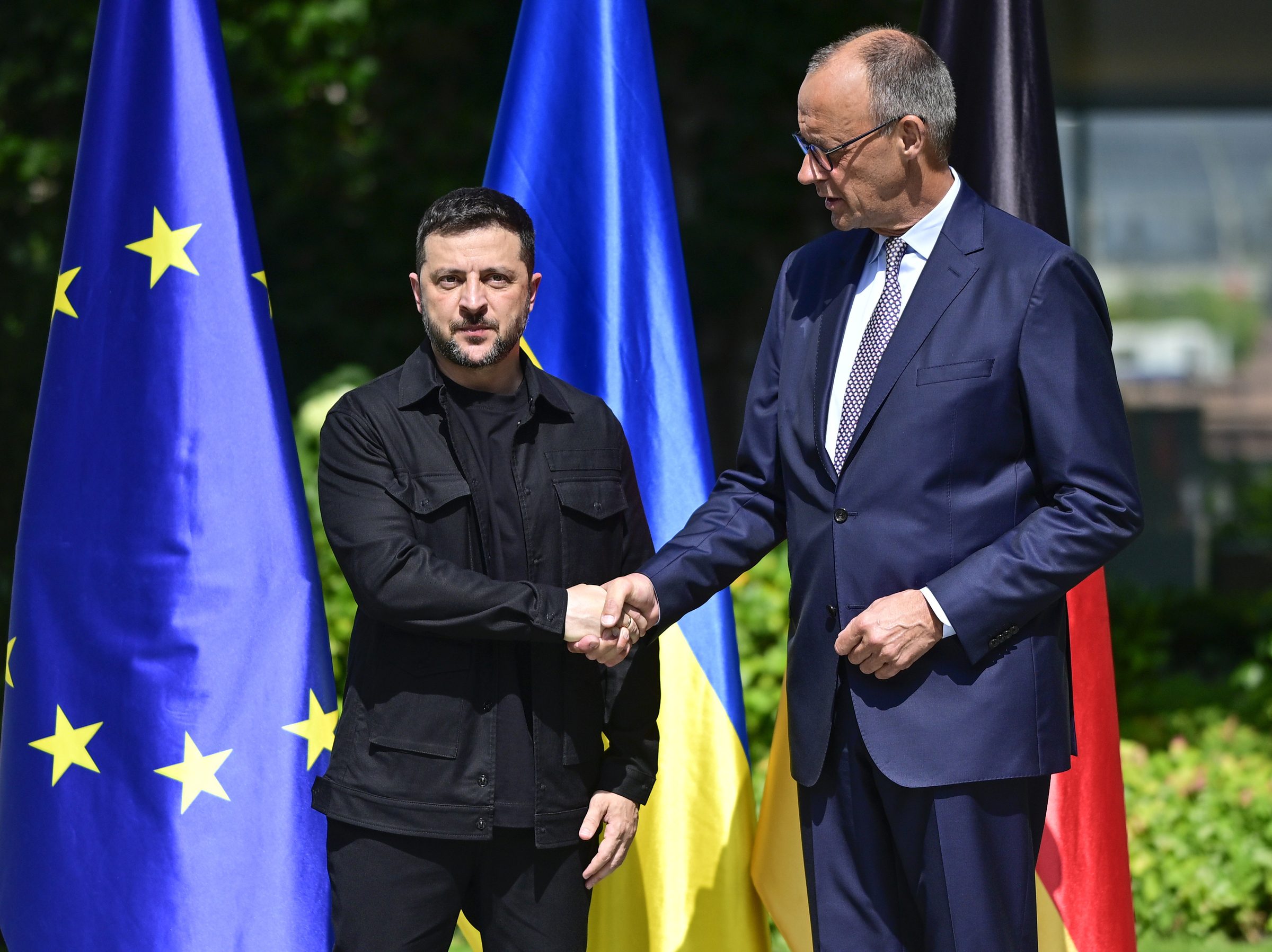 |
German Chancellor Friedrich Merz welcomes Ukrainian President Volodymyr Zelensky in Berlin on 13/8. |
President Zelensky traveled to Berlin for the meeting and later held a press conference with Chancellor Merz to announce the preliminary results of the discussion.
"We had a truly constructive and productive exchange with President Trump," Merz said. "There is hope for progress, there is hope for peace in Ukraine."
President Trump has long been known for his unpredictable behavior, especially regarding Ukraine. In recent weeks, European allies believed they had successfully persuaded him to follow their strategy, but then felt uneasy when the US president appeared receptive to proposals from his Russian counterpart, such as agreeing to the hastily planned summit. Europe was completely sidelined in the lead-up to this summit.
However, after the virtual meeting, President Trump expressed satisfaction with his European allies.
"We had a very good call," he told reporters in Washington. "I'd give it a 10. Very friendly."
The president said he would call his Ukrainian counterpart and European leaders after the Alaska summit. If the summit goes well, he wants to meet soon with all three parties, including the leaders of Russia and Ukraine.
He also declared there would be "very serious consequences" for Russia if President Putin doesn't agree to end the conflict after the upcoming meeting. But when asked if he believed he could persuade his Russian counterpart to agree to a ceasefire, the president said he had held many conversations on the issue without any results.
Both Chancellor Merz and President Zelensky said President Trump agreed to 5 principles for the upcoming meeting with President Putin, including ensuring Ukraine's participation as a negotiating party and that the US would not discuss peace terms, such as territorial exchanges between Russia and Ukraine, before a ceasefire is implemented.
The two leaders said Kyiv is prepared to discuss territorial adjustments, including ceding some land to Moscow, but will not discuss recognizing Russia's control over Ukrainian territories.
US and European leaders also agreed on the need to guarantee Ukraine's security after the conflict and committed to increasing economic pressure on Russia if negotiations fail.
According to European Council President Antonio Costa, who participated in the call, President Trump said he supports the security guarantees and that any decision on territorial exchanges would be made by Ukraine, not the US.
"Some messages were conveyed in the exchange, such as the requirement not to negotiate territorial issues related to Ukraine. Only the Ukrainian President has the right to do this," President Costa said. "There must be a link between territorial concessions and security guarantees for Ukraine."
President Trump earlier this week hinted to reporters at the White House that he might negotiate a territorial exchange with his Russian counterpart.
President Zelensky opposes this idea. Under the Ukrainian constitution, any territorial exchange agreement must be subject to a referendum; the president or parliament cannot unilaterally decide. However, President Trump seemed unconcerned about this.
"I don't care that Zelensky says he needs constitutional approval to exchange land," Trump said at a White House press conference on 11/8. "He has the right to go to war and cause many deaths, but he needs approval to make a land concession agreement."
Experts view the 13/8 virtual meeting as a final effort by Chancellor Merz and his European partners to prevent President Trump from making unilateral decisions at the upcoming summit and from being swayed by the Russian leader into agreeing to terms unfavorable to Ukraine.
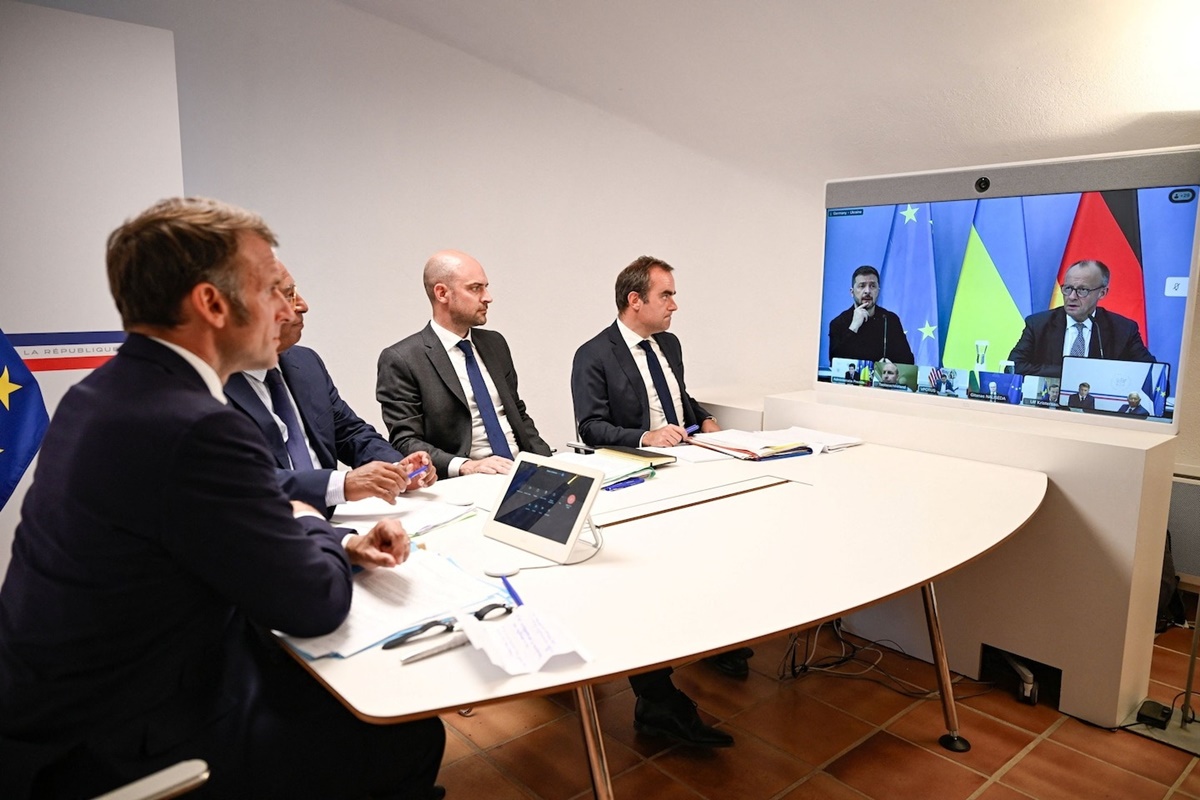 |
European leaders participate in a virtual meeting with President Zelensky and Chancellor Merz on 13/8. Photo: Reuters |
European leaders participate in a virtual meeting with President Zelensky and Chancellor Merz on 13/8. Photo: Reuters
Chancellor Merz and his allies invited European leaders with good relationships with President Trump to the virtual meeting, including the leaders of Poland, Finland, Italy, and NATO Secretary General Mark Rutte.
Above all, Europe fears President Putin might use the meeting to persuade President Trump to accept a peace agreement that Ukraine would never accept, leading the White House to take its frustration out on Kyiv.
If that happens, the US President could threaten to withdraw crucial intelligence support for Ukraine on the battlefield, as he briefly did last spring.
According to Anna Sauerbrey, an international affairs analyst at Germany's Die Zeit newspaper, in this scenario, Europe would certainly continue to support Ukraine, but their task would become much more difficult. Chancellor Merz and other EU leaders have acknowledged how essential US support is to them.
"They can hope, pray, and continue to praise him," she said. "But that's all they have."
Vu Hoang (According to AP, Reuters, AFP)







